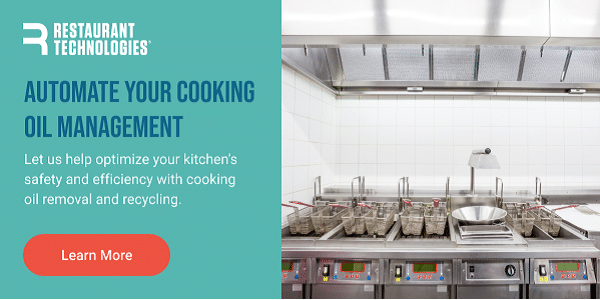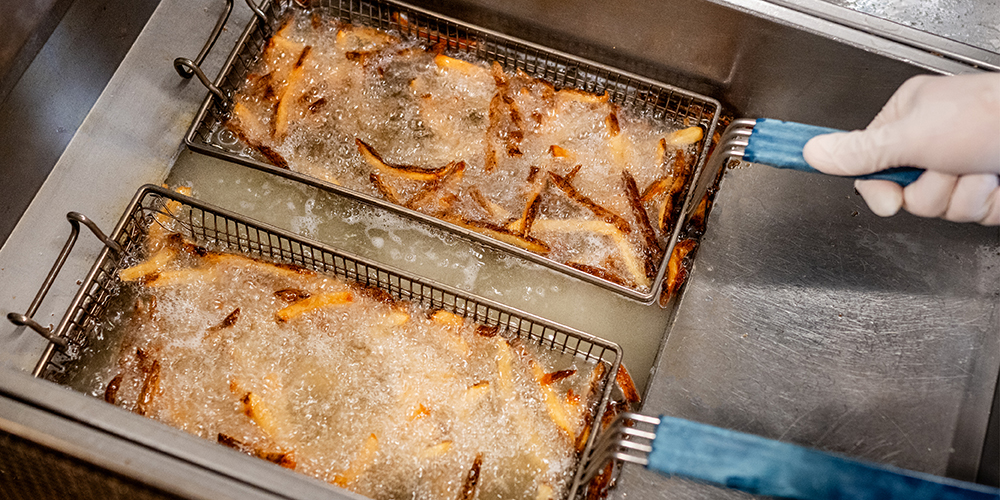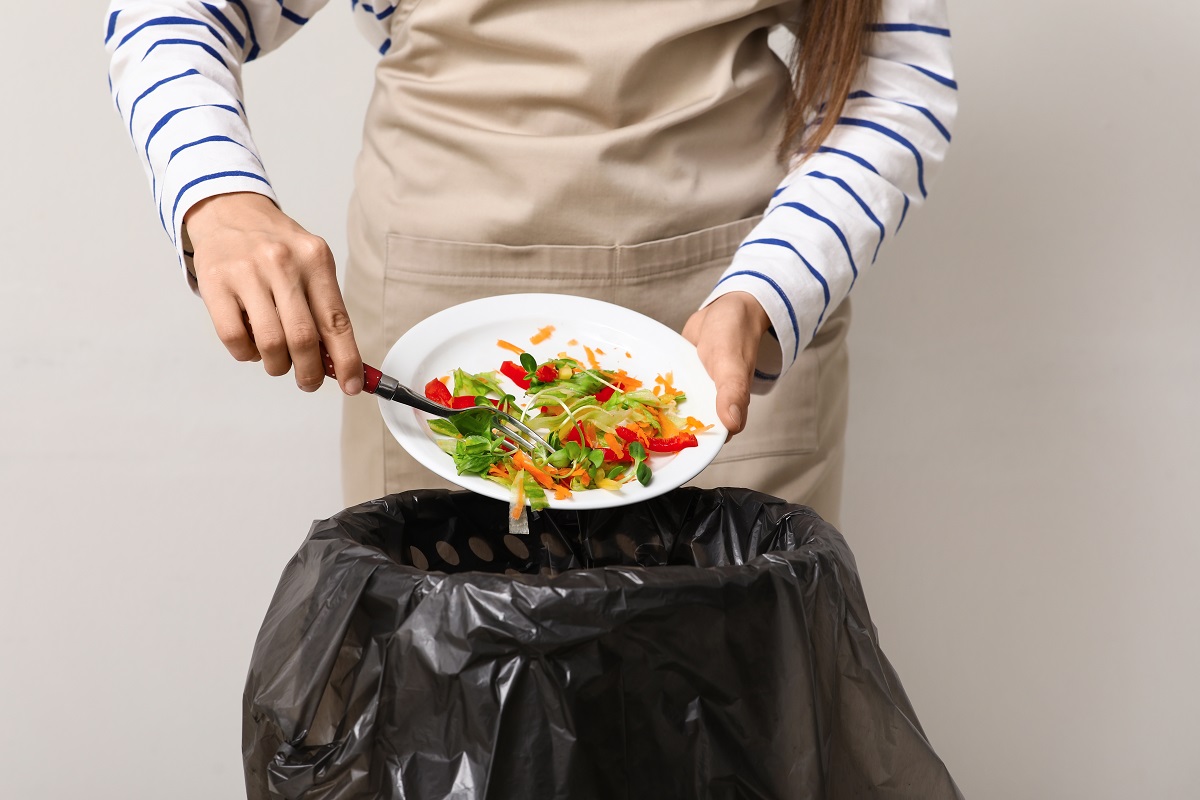In the fast-paced world of restaurant kitchens and home cooking, proper used cooking oil disposal is often an overlooked aspect. However, understanding the potential hazards and environmental impact of mishandling this common kitchen byproduct is crucial. In this extensive guide, we’ll explore the common mistakes individuals and restaurants make when dealing with used cooking oil. More importantly, we’ll shed light on Restaurant Technologies’ efficient system for oil recycling and disposal.
The Environmental Footprint of Used Cooking Oil
Amidst the sizzle and aroma of cooking, the environmental implications of used cooking oil can be easily ignored. However, responsible oil disposal is not just a matter of compliance; it’s a vital step toward maintaining a sustainable kitchen and reducing our collective carbon footprint.
Why You Shouldn’t Pour Oil Down the Drain
Environmental Consequences Unveiled
Pouring used cooking oil down the drain might seem like a convenient solution, but the consequences to the earth are significant. The oil, when cooled, can solidify in sewer pipes, leading to blocked drains and potential backups. This not only poses a threat to your plumbing system but also contributes to environmental pollution and harm.
Potential Damage to Plumbing Systems
Hot oil poured down drains can congeal in pipes, causing blockages that are challenging and costly to address. The grease solidifies over time, creating a sticky buildup that hinders water flow. The result? Blocked drains requiring extensive drain cleaning and, in severe cases, pipe replacements. Hence, why it’s important to know how to dispose of used cooking oil.
How to Dispose of Cooking Oil Properly
Recycling Centers: A Green Solution
Restaurant Technologies champions responsible disposal methods, advocating for the use of recycling centers. Here, we provide detailed steps on locating and utilizing local recycling centers for used cooking oil, as well as the benefits of recycling used cooking oil. It’s a simple yet impactful way to contribute to a greener environment.
Reuse and Storage: A Sustainable Approach
Restaurant Technologies encourages taking initiative and being a leader in sustainable practices. Learn about tips on reusing cooking oil and proper storage practices that not only reduce waste but also promote environmentally conscious business operations.
Common Misconceptions: Debunking Cooking Oil Disposal Myths
Myth 1: Pouring Oil Down the Drain is Harmless
One prevalent misconception is the belief that pouring used cooking oil down the drain causes no harm. In reality, hot oil cools and solidifies in pipes, leading to blockages. Over time, this can result in expensive plumbing issues and environmental pollution. Restaurant Technologies emphasizes that responsible disposal is not only necessary but also contributes to a healthier kitchen and planet.
Myth 2: Cooking Oil is Similar to Other Liquid Waste
A common misunderstanding is treating cooking oil as just another liquid waste. The truth is, cooking oil has unique properties that make it a challenging substance for sewage systems. It doesn’t break down easily and can accumulate in pipes. By clarifying this distinction, we encourage a shift in mindset, recognizing cooking oil as a substance that demands special consideration in disposal practices.
Myth 3: All Oils Can be Disposed of in the Same Way
Some wonder how restaurants dispose of cooking oil, or believe that all cooking oils can be disposed of in the same manner. However, different oils have distinct characteristics. For instance, olive oil solidifies at a different temperature than vegetable oil.
Myth 4: Grease Traps Can Handle All Types of Oil
Another misconception revolves around the capability of grease traps to manage any type of oil. Grease traps are effective to a certain extent, but they have limitations. Heavy oils and excessive amounts can overwhelm grease traps, leading to inefficient performance.
Myth 5: Hot Water Will Solve Oil Disposal Issues
Some believe that pouring hot water down the drain after disposing of oil will prevent blockages. Unfortunately, this is a myth. While hot water may temporarily liquefy the oil, it eventually cools and solidifies further down the pipes. Our advice emphasizes proactive measures like solidification before disposal, rather than relying on reactive approaches that may exacerbate the problem.
Best Practices for Environmentally Friendly Disposal
Eco-Friendly Alternatives
Restaurant Technologies’ commitment to sustainable business practices is evident in highlighting eco-friendly alternatives and practices. Discover innovative approaches that align with your values and contribute to a healthier planet.
Related Environmental Concerns
Beyond Cooking Oil: Household Waste Matters
Touching on broader environmental issues related to household waste, we acknowledge that responsible oil disposal is just one piece of the puzzle. Our dedication to caring extends to all aspects of environmental impact, promoting diversity and sustainable practices.
Restaurant Technologies’ Total Oil Management: A Game-Changer
Streamlining the Recycling Process
Our total oil management system is a game-changer for both individual kitchens and large-scale restaurant operations. By partnering with us, you not only contribute to a sustainable future but also benefit from a seamless and effective oil disposal process.
Integrated Solutions for Businesses
For restaurants and food establishments, Restaurant Technologies offers integrated solutions that align with our commitment to customer, character, commitment, courage, and community. These values form the core of our organization and guide every decision we make.

FAQs: Answering Your Concerns
- Can you pour used cooking oil down the drain?
- No, it’s not recommended. Follow this guide for responsible disposal methods.
- What happens if you pour oil down the sink?
- It can lead to blocked drains and environmental pollution.
- Can I reuse cooking oil?
- Yes, with proper storage and practices. Learn more in our guide.
- How to solidify cooking oil for disposal?
- Follow our simple instructions for easy oil disposal.
- Is it safe to throw away oil in the trash?
- It’s not the most environmentally friendly option. Explore alternatives in our guide.
- What are the environmental benefits of proper oil disposal?
- Reduced pollution, blocked drains, and a healthier planet.
In conclusion, our efficient system for oil recycling and disposal seamlessly aligns with our commitment to the environment and community. By avoiding common mistakes in cooking oil recycling and adopting best practices, you not only protect your kitchen but also contribute to a sustainable future.







